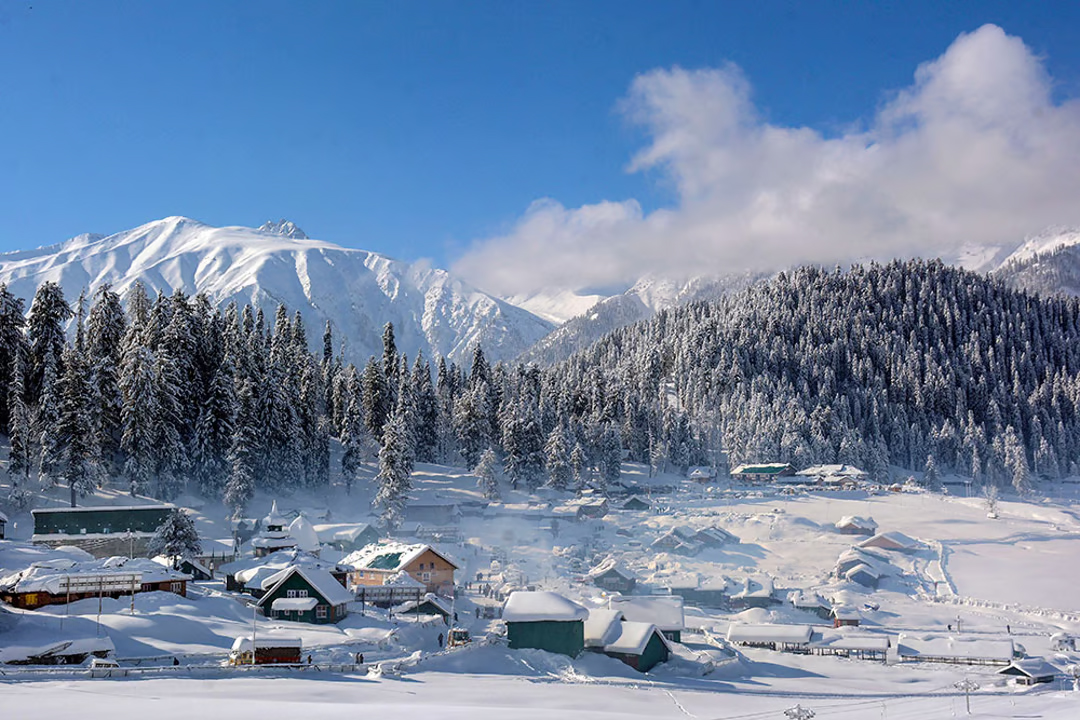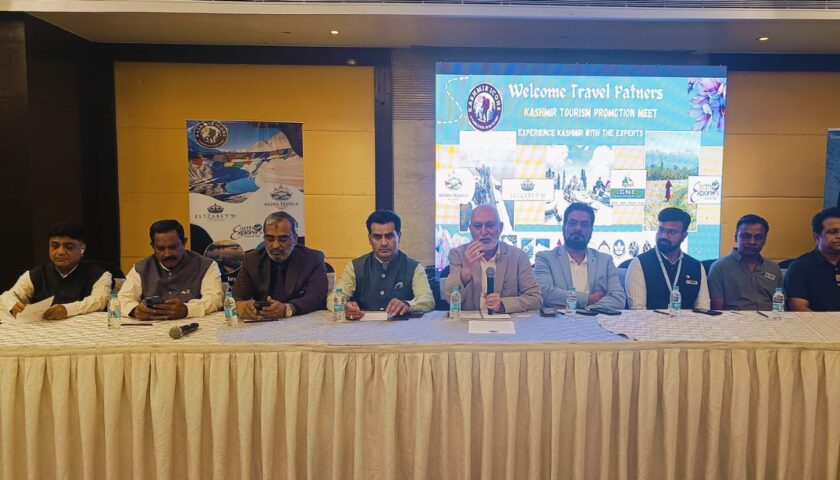Why J&K Wants Tourism Regulated: Striking a Balance Between Growth and Sustainability
Srinagar 06 April 2025: A Rising Tide of Tourism, and Its Ripple Effects
Jammu and Kashmir, long hailed as the crown jewel of India’s tourism sector, has witnessed an unprecedented boom in travelers visiting its scenic valleys, alpine lakes, and historic landmarks in recent years. While this surge has brought much-needed economic relief to the region, it has also sparked serious concerns among policymakers, environmentalists, and locals about the consequences of unregulated tourism. Calls for stricter regulations and sustainable tourism practices are growing louder as the region grapples with the dual-edged sword of economic growth and environmental degradation.
The Travel Boom: A Mixed Blessing
Tourism in J&K has surged following the easing of restrictions and the growing interest in domestic travel post-pandemic. Key destinations such as Gulmarg, Pahalgam, Sonamarg, and the Dal Lake in Srinagar are hosting record numbers of visitors, leading to a thriving local economy. Hotels are fully booked, shikaras are busy ferrying tourists across the Dal Lake, and handicraft vendors report increased sales.
“This boom is helping thousands of families earn a livelihood, from hotel owners and tour operators to shikara operators and souvenir sellers. It’s a welcome change after years of challenges,” said a tourism official.
However, there is growing concern about the unregulated flow of visitors, with stakeholders warning of potentially irreversible harm to J&K’s fragile ecosystem and cultural heritage.
Environmental Impact: Fragile Ecosystem at Risk
One of the most significant concerns raised by experts is the environmental toll of unregulated tourism. Increased footfall has led to issues such as waste accumulation, overexploitation of water resources, and encroachment on sensitive ecological zones.
Key environmental concerns include:
- Waste Management Challenges: Popular destinations like Gulmarg and Sonamarg are witnessing mounting piles of plastic waste, which harm local flora and fauna and diminish the region’s pristine beauty.
- Pressure on Water Resources: Increased demand for water in tourist-heavy areas is affecting the availability of clean water for local communities.
- Overcrowding in Ecological Zones: High footfall in delicate areas like meadows and wildlife sanctuaries threatens biodiversity.
“These places need protection. If we don’t regulate tourism now, the damage may become irreversible,” warned an environmentalist from Srinagar.
Cultural Concerns: Preserving Identity and Heritage
Tourism’s influence on J&K’s cultural fabric is another issue sparking debates. While the influx of visitors has increased visibility for local traditions, crafts, and cuisine, unregulated tourism risks diluting the region’s unique cultural identity. Instances of cultural misappropriation and disregard for local customs have frustrated many residents.
A historian remarked, “Jammu and Kashmir’s rich heritage needs to be respected and preserved. Tourism should bring understanding and appreciation—not leave a trail of damage.”
Economic Considerations: Balancing Growth with Sustainability
On the economic front, unregulated tourism raises concerns about equitable growth. Locals point out that while tourism has benefited certain sectors, others—particularly agricultural communities—are often left grappling with rising costs of living and shrinking resources.
There is also growing concern over large-scale commercial developments targeting tourists, which often come at the expense of local needs and environmental priorities. “Hotels are mushrooming everywhere, but what about schools and healthcare for local communities?” questioned a resident of Pahalgam.
Also Read | Blossoming Splendor: A Complete Guide to Srinagar’s Badamwari Garden – Kashmir’s Almond Paradise in Spring
The Road Ahead: Calls for Regulation and Reform
Experts and stakeholders are advocating for comprehensive reforms to regulate tourism in J&K. Some of the proposed measures include:
- Waste Management Policies: Introducing stringent waste disposal regulations for tourists and businesses.
- Eco-Tourism Practices: Promoting sustainable tourism initiatives, such as eco-friendly accommodations and guided tours with environmental education.
- Visitor Caps: Setting limits on the number of tourists in sensitive areas to reduce overcrowding and environmental strain.
- Community Participation: Ensuring that local communities have a say in tourism policies and benefit equitably from the sector’s growth.
A Shared Responsibility
Regulating tourism in Jammu and Kashmir is not just the government’s responsibility—it is a shared endeavor that requires cooperation from businesses, travelers, and local communities. As J&K stands at the crossroads of growth and sustainability, finding a balance will be key to ensuring that the region’s beauty, culture, and identity endure for future generations.
Also Read | Gurez Valley: From Conflict to Conservation – Your Gateway to Kashmir’s Untouched Paradise




